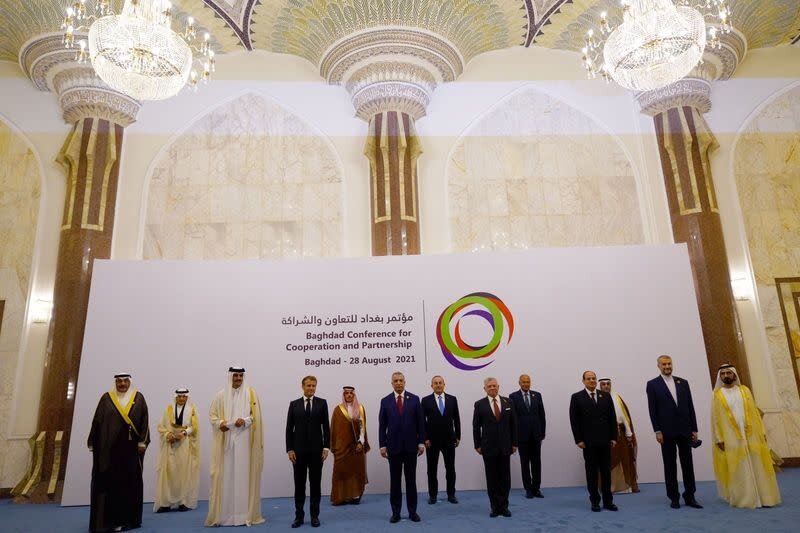Iranian, Persian Gulf officials “meet” in Baghdad

Iranian and Persian Gulf Arab officials have reportedly met in Baghdad on the sidelines of a regional summit in Iraq.
Officials from two Persian Gulf Arab states have claimed Iranian Foreign Minister, Hossein Amirabdollahian, met his counterparts from Kuwait and the United Arab Emirates but provided no further details. Tehran has yet to comment on the meeting.
There was no indication of any direct meetings between Iran and Saudi Arabia, but Iraqi officials said talks between the two countries, which began in April, were continuing.
Over the past several months Iran and Saudi Arabia resumed direct talks in Iraq. The meetings have yet to achieve a breakthrough but have been welcomed by Tehran and Riyadh.
The Baghdad summit saw heads of state attending, included Egyptian President Abdel Fattah al-Sisi, King Abdullah of Jordan, Qatari Emir Sheikh Tamim bin Hamad al-Thani and Macron. Kuwait and the United Arab Emirates sent their heads of government, and Turkey its foreign minister.
Iran and Sunni Saudi Arabia have sent their foreign ministers.
Organizers of the Baghdad summit said they did not expect any immediate diplomatic breakthroughs. One Iraqi government official said "Getting the countries to sit around the table - that has been achievement enough"
Iran says mutual trust can be built within the region without the need of outside interference in West Asia. Tehran has repeatedly announced in public its readiness to discuss regional issues with its neighbors.
It has stretched its hands out to neighboring nations on a number of occasions. One of these being the Hormuz Peace Initiative.
The Islamic Republic presented the plan at the seventy-fourth UN General Assembly gathering.
The Initiative is one of Iran's eight UN-submitted initiatives that seek to create a safe and secure world within the framework of reconciliation and effective and productive engagement with the region and the world.
The Hormuz plan will see Iran, in cooperation with various countries, create security in the Persian Gulf and the Oman Sea and the Strait of Hormuz with the help of regional nations.
It is aimed at proving to the world that the presence of foreign forces in the region and as well as shipping security and oil security are problematic, dangerous and unnecessary.
Iran’s path has been to unite and coordinate with the countries of the region, but Tehran’s neighbors have so far looked the other way. They have relied on Washington instead for supposedly security purposes.
In the aftermath of the recent events in Afghanistan, Persian Gulf Kingdoms might have begun to recalculate their security dependence on the United States.
